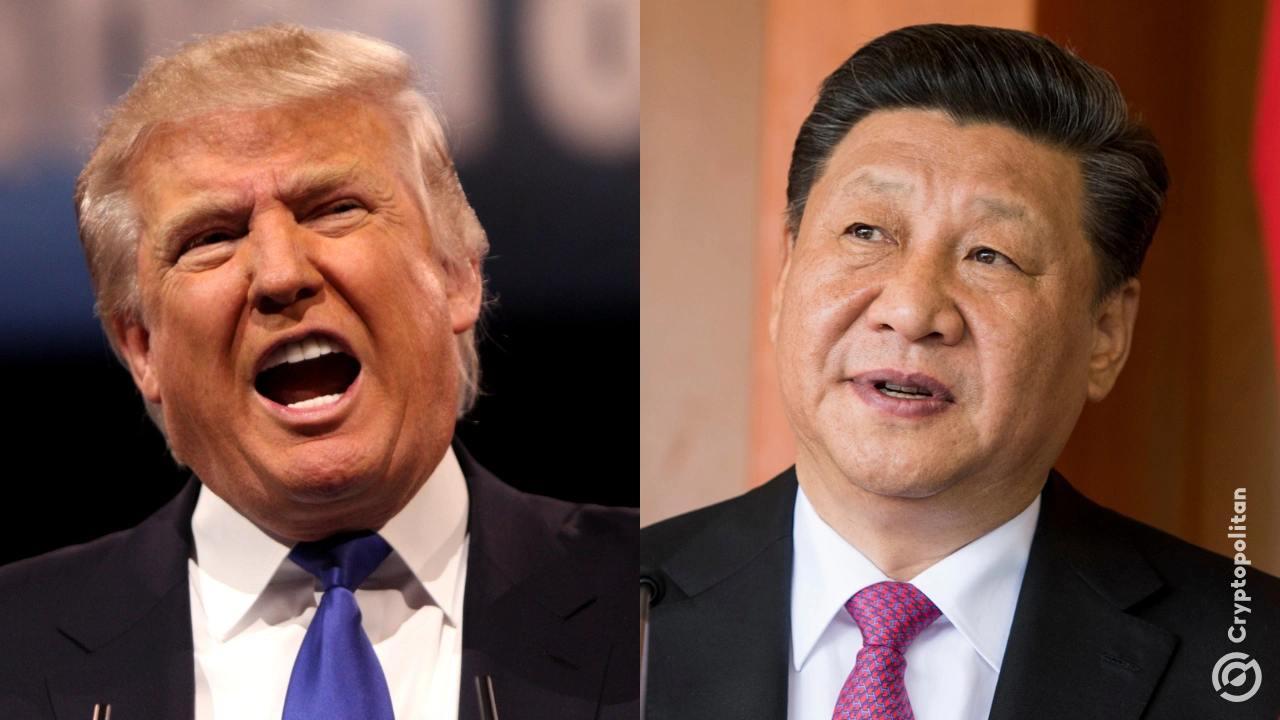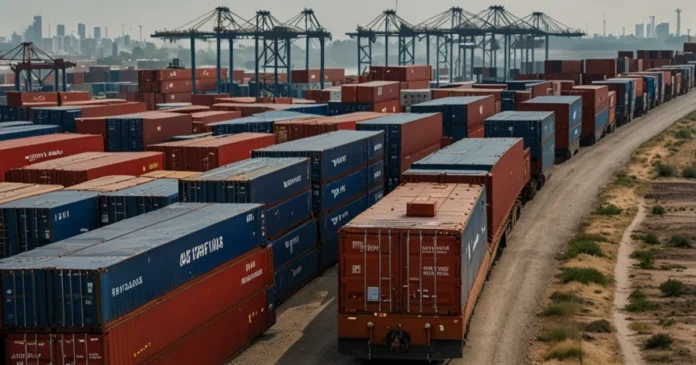China has raised its tariffs on US imports from 84% to 125%, effective April 12, to battle America’s 145% trade import levies. The latest round of tariff hikes by Washington has angered officials in Beijing. Chinese foreign ministry has said it will never “accept arrogant and bullying behavior” from the US.
The tariff hike announcement was made by China’s State Council Customs Tariff Commission just hours after President Xi Jinping publicly warned against the perils of economic protectionism.
“There are no winners in a tariff war,” Xi said while meeting with Spain’s Prime Minister Pedro Sánchez, a remark supposedly directed at the United States.
China and US tariff-for-tariff war continues
According to the statement issued by the Customs Tariff Commission, the tariff hike was prompted by Washington’s April 10 decision to raise duties on Chinese exports to the United States. US tariffs on Chinese goods have now surged to 145%, what Trump’s administration has coined as a “peer-to-peer tariff” framework.
In its response, Beijing accused the US of “unilateral bullying and coercion,” arguing that such measures violate international trade norms and economic common sense.
“At the current tariff level, there is no possibility of market acceptance for US goods exported to China,” the statement read.
Officials have placed several legal frameworks, including China’s Customs Law and international law, to justify the move. The State Council authorized the tariff hike and updated an earlier 2025 directive governing duties on US-origin imports.
“If the US continues to impose tariffs on Chinese goods exported to the United States, China will ignore them,” the Customs authority concluded.
Xi pushes for alliances with EU, other Asia nations
President Xi is reportedly extending his diplomatic outreach to other nations to help China fend off the US’s harsh trading conditions. On Friday, he met with Spanish Prime Minister Sánchez in Beijing to shore up ties with European partners in the European Union (EU).
According to an official Chinese summary, Xi mentioned that China and the EU should “jointly resist unilateral bullying” and work together to uphold international trade rules.
“China and the EU should fulfill their international responsibilities, jointly maintain the trend of economic globalization and the international trade environment, not only to safeguard their legitimate rights and interests, but also to safeguard international fairness and justice, and to safeguard international rules and order,” the summary denoted.
Spain’s Sánchez advocated for a balanced EU-China relationship built on dialogue and cooperation. The two leaders supposedly discussed avenues to address trade disagreements and identified areas where both nations could grow mutually.
Earlier this week, Xi spoke with counterparts from Saudi Arabia and South Africa and announced plans to visit Southeast Asia next week, including Vietnam and Cambodia.
Vietnam and Cambodia were impacted by Trump’s reciprocal tariffs, which were set at 46% and 49%, respectively, but the rates are much lower than those faced by China. Businesses have invested in Southeast Asian economies to reduce dependence on Chinese manufacturing and avoid US levies.
At a Communist party work conference focused on peripheral diplomacy, Xi called for building a “shared future with neighboring countries.” A statement from the two-day meeting talked about Beijing’s ambition to “strengthen cooperation on industrial and supply chains” with nearby Asian nations.
China is asking nations to ‘not trade’ with the US
Chinese officials have held discussions with leaders from South Korea, Japan, and various European countries in an attempt to present Beijing trade as a viable alternative to Washington.
However, many of China’s trade partners would not want their markets flooded with surplus Chinese goods, especially now as the country ramps up production amid sluggish domestic demand.
Moreover, China’s history of leveraging market access to punish countries over political disagreements does not make the second-largest economy trustworthy.
According to a report by Reuters, regional governments are preparing enforcement measures to clamp transshipment practices, which involve rerouting Chinese exports through neighboring countries to disguise their origin.
In Taiwan, President Lai Ching-te announced that his administration would be among the first to initiate trade negotiations with Washington. Taiwan, which is currently listed for a 32% US tariff, has proposed offering zero tariffs as a starting point for talks in exchange for a favorable trade arrangement with the United States.
According to local news outlets, Japan’s Prime Minister Shigeru Ishiba has assembled a dedicated task force headed by one of Ishiba’s closest aides, and is planning a visit to Washington next week to negotiate with President Trump for exemptions for Japanese exports.
On Friday, major Asian indices followed Wall Street into the red. Japan’s Nikkei dropped by 2.26%. Hong Kong stocks were on track for their worst weekly loss since the 2008 financial crisis but closed the trading session at 20,915, 1.1% up from the previous session.
Cryptopolitan Academy: Coming Soon - A New Way to Earn Passive Income with DeFi in 2025. Learn More
















No comments yet